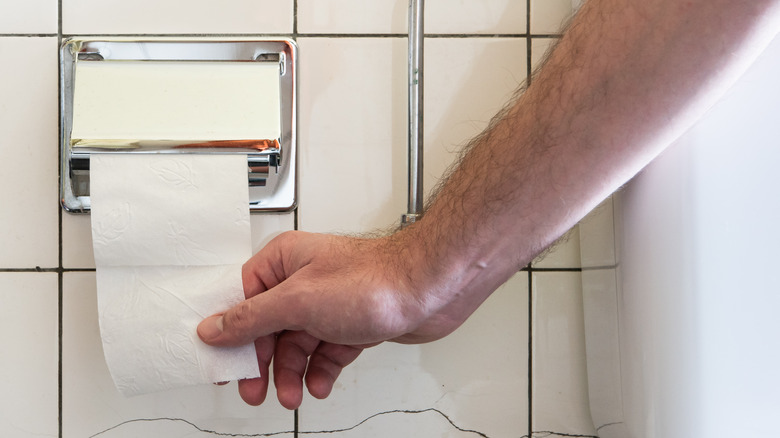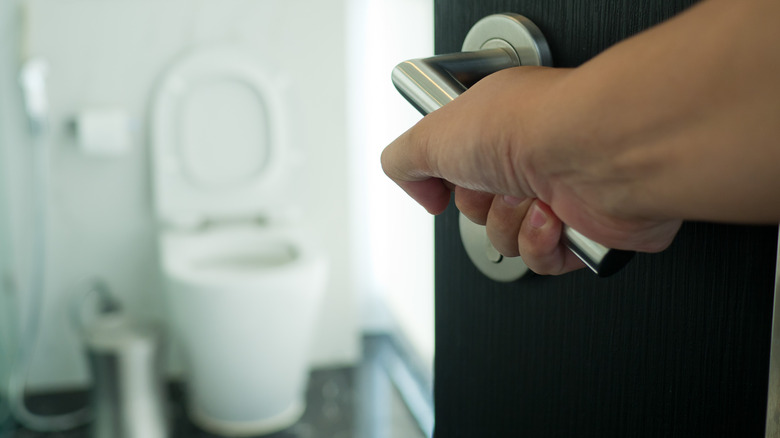Can Hemorrhoids Kill You?
When excess strain is placed on the veins near our anus and lower rectum, the result can be hemorrhoids. Whether internal or external, the discomfort of hemorrhoids is due to the inflammation of the surrounding blood vessels, explains Johns Hopkins Medicine. Older adults, people who are pregnant, or individuals who have a family medical history of hemorrhoids may be more prone to this uncomfortable swelling and itching. Our bathroom habits may also increase our risk for hemorrhoids, alternatively referred to as piles, according to Healthline. For example, if you get sucked into a bottomless pit of TikTok reels and end up sitting on the toilet for too long, you may be more likely to develop hemorrhoids. The same is true if you're regularly straining when going number two.
Hemorrhoids are no fun, but can they potentially be life-threatening? It's a logical question. After all, piles can produce blood in one's poop, which can be alarming at first glance. Rest assured, hemorrhoids alone are not fatal. If left untreated, however, they can lead to complications.
Possible complications of hemorrhoids
Without treatment, internal hemorrhoids may lead to infection, internal bleeding, or the visible protrusion of hemorrhoids from the anus (per Healthline). Alternatively, untreated external hemorrhoids may cause the development of blood clots, skin tags, and hard bumps, or lead to painful strangulated hemorrhoids in which the vein is no longer receiving blood flow, the Mayo Clinic explains. Although uncommon, Johns Hopkins Medicine adds that in some cases, untreated hemorrhoids can increase one's risk for anemia.
That's why it's important to seek treatment at the first sign of hemorrhoids. Call your doctor if you notice blood in the toilet or on toilet paper after a bowel movement. Symptom management often includes soaking in a warm bath throughout the day, applying an ice pack to the area, boosting one's fiber and fluid intake, as well as using medications or topical products — some research even suggests that topical application of certain essential oils may help relieve hemorrhoid discomfort. In more severe cases, medical procedures may be warranted. This can involve rubber band ligation, permanent surgical removal, or the use of infrared light or chemical injections.


